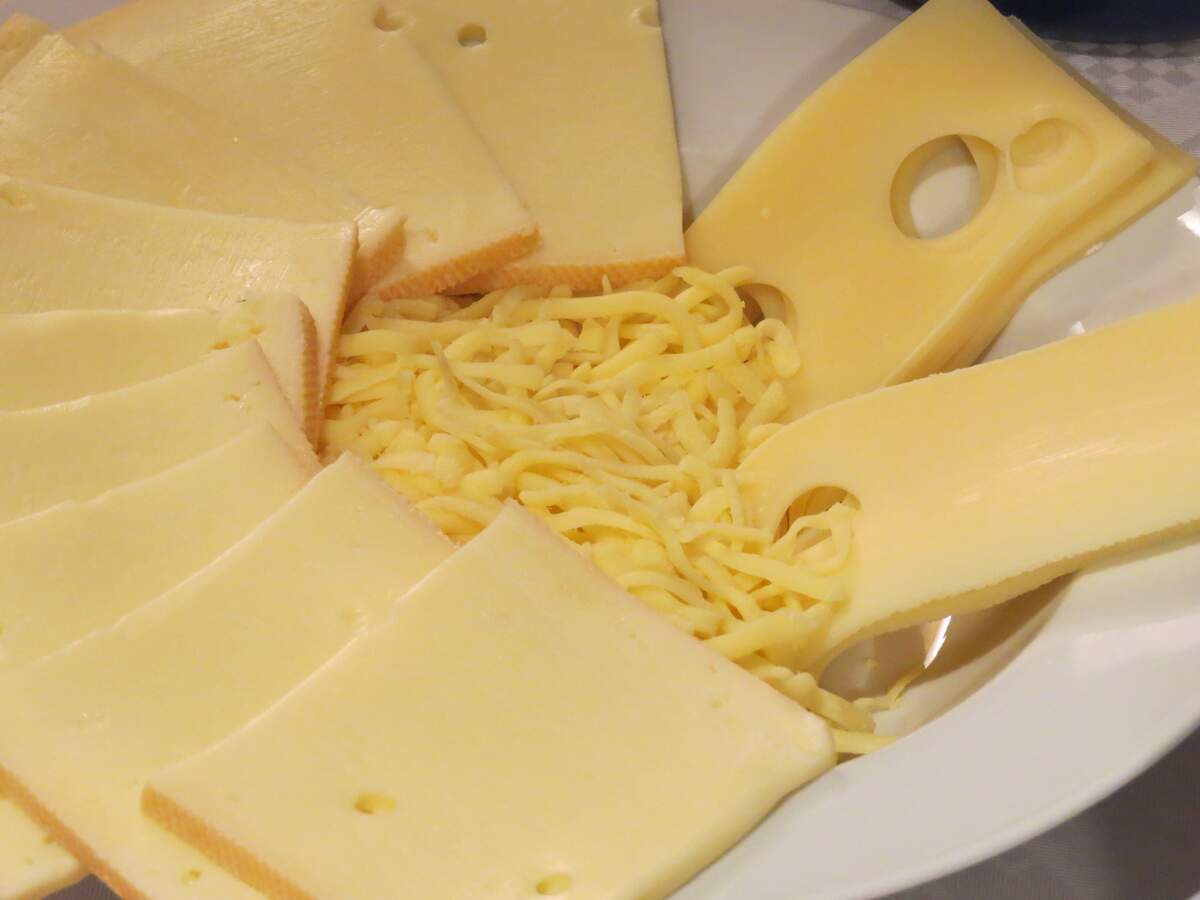

National Cheese Lovers Day
Observed
annually on January 20th
Dates
Tags
Food & Drink
Snacks & Desserts
Hashtags
Sources
https://www.bustle.com/p/how-to-celebrate-national-cheese-lovers-day-2017-arguably-the-best-holiday-of-the-year-30759
https://www.punchbowl.com/holidays/national-cheese-lovers-day
https://www.smithsonianmag.com/arts-culture/celebrate-national-cheese-lovers-day-map-cheese-found-around-world-180953915/
https://www.thespruceeats.com/the-history-of-cheese-1328765
Chances are you don't just like cheese, you love it. If that's the case, you are in for a treat—today is National Cheese Lovers Day! Cheese is made from curds—the bits of protein that form when milk sours—from the milk of cows, goats, sheep, and buffalo. Spices, seasonings, mold, temperature, and age help determine its flavor and texture, and these in turn help determine how it is classified. Common classifications and some examples include fresh cheese like ricotta, soft cheese like feta, semi-soft cheese like Fontina, semi-hard cheese like Gouda, hard cheese like Cheddar, double or triple crème cheese like Brillat-Savarin, blue cheese like Gorgonzola, washed rind cheese like Limburger, and bloomy rind cheese like brie. The name "cheese" comes from the Latin word caseus, which stems from the Proto-Indo-European root kwat, which means "to ferment" or "to become sour."
Cheese dates back to before recorded times. Legend has it that it was first made by accident: an Arabian merchant who was keeping milk in an old sheep stomach found that it had separated into curds and whey. This reaction was caused by heat and from rennet, an enzyme found in the stomach. This was perhaps around 8000 BCE, around the time that sheep were first domesticated.
Cheese became a way to preserve milk before the invention of refrigeration. The curds were strained, and salt was added, which helped it keep longer. Still, cheese had a short shelf life and was made fresh and eaten daily. According to archaeological findings, some of the first intentional cheese making was being done around 5,500 BCE, in the area that is now Poland. Beyond Europe, there is evidence of early cheesemaking being done in the Middle East and Central Asia.
Romans made many different kinds of cheese and making it became a culinary art form. They spread their methods north into Europe, where they were adapted by monks. In Northern Europe, the climate was cooler, so less salt was needed for preservation. This cheese tended to be creamier and milder. Aged, ripened, and blue cheeses also came about in these cooler climates. During the Middle Ages, European cheesemakers originated Parmesan, Gouda, Camembert, and Cheddar.
Mass production of cheese started in 1815 when the first commercial cheese factory opened in Switzerland. Processed cheese, which consists of cheese combined with milk, emulsifiers, stabilizers, flavoring, and coloring, made its debut about a century later. It gained in popularity during the World War II era, becoming more popular than natural cheese. In more recent years, artisan cheesemaking has been making a resurgence.
Cheese is easy to love on its own, but it also goes well with soufflés, soups, and pastas, and can be paired with many foods. It many times is also paired with white or red wine. Being that there are so many kinds of cheese, there is plenty of love to spread around. On National Cheese Lovers Day, we eat and enjoy as much cheese as possible.
How to Observe National Cheese Lovers Day
Celebrate National Cheese Lovers Day by eating cheese! Put it on crackers or a sandwich, make yourself a pizza with an extra heaping of it, or eat some nachos. Make your own cheese or try a cheese out of your comfort zone. Buy hard, soft, and blue cheeses, as well as things to pair with them such as grapes, olives, or tomatoes. Don't forget to buy some wine, too. If you are feeling creative, you could design a cheese board. Let your cheese sit out for a half an hour at room temperature to give it a better texture and flavor. Then, enjoy it with your friends, perhaps at a cheese party at your home. To burn off some of those cheese calories, you could get yourself moving and visit a cheese factory or plan a trip to a cheese festival.





















